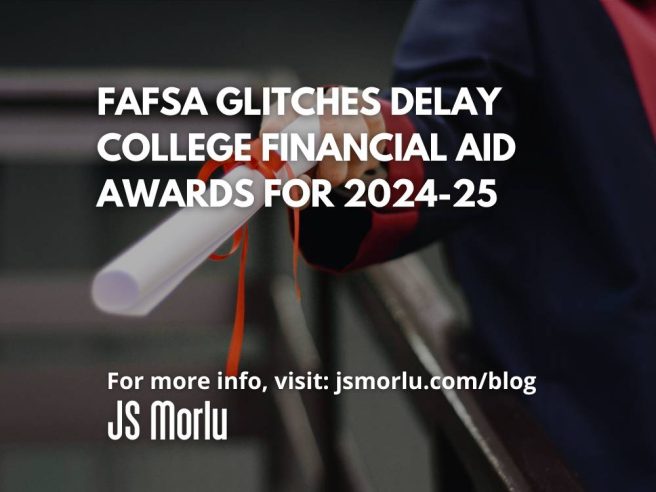It’s been a tough financial aid season for college students and their families. The FAFSA (Free Application for Federal Student Aid) was redesigned and simplified for the 2024-25 school year, in what was supposed to benefit families completing the application. But a late rollout and the subsequent discovery of form calculation errors have led to processing delays and, by extension, delays for colleges sending out student financial aid packages for the 2024-25 school year.
Both new and returning college students are affected because students must submit the FAFSA each year to be eligible for federal financial aid. But the series of delays may be particularly painful for new students who are waiting to review and compare financial aid packages from multiple colleges before making a final decision by the general May 1 college admissions deadline.
A Slow Rollout for the New, Simplified Fafsa
The FAFSA Simplification Act (part of the Consolidated Appropriations Act of 2021) gave the go-ahead for a shorter, more streamlined FAFSA. The new, simplified form was heralded as a bipartisan breakthrough and a win for families trying to navigate and complete the application. The full redesign was scheduled to take effect with the 2023-24 FAFSA but was delayed a year due to the pandemic.
The new 2024-25 FAFSA arrived with almost two-thirds fewer questions and a mandatory IRS direct data exchange tool to import income information from tax returns, two changes intended to make the form easier to complete. But the public rollout of the 2024-25 FAFSA was delayed three months, from the usual October 1 open date to December 31, 2023. This extra time was due to several new calculations and adjustments to the aid formula and the technical integration needed to embed them into the form. Along with a new aid formula, the terminology changed too: a new “student aid index” (SAI) replaced the well-known “expected family contribution” (EFC) as the yardstick for measuring a student’s aid eligibility.
Subsequent Calculation Errors
Once the 2024-25 FAFSA opened in late December, various online glitches disrupted public access to the form during the month of January. Then on January 30, the Department of Education announced that inflation adjustments were being made to the aid calculation, which opened up a potential additional $1.8 billion in aid but would delay processing of the form until March, leading to delays in families receiving aid awards from colleges. (In a typical year when the FAFSA is available in October, students can start receiving college aid awards by the end of the calendar year, though timelines vary by college.)
Then on March 22, the Department of Education announced another form error that affected the student aid index calculation for dependent students who reported assets, requiring another round of reprocessing for all affected applications. The Department continues to provide information and tools for families on studentaid.gov about completing the 2024-25 FAFSA.
Colleges and Students Left Scrambling
In the meantime, colleges need time to review incoming FAFSAs, model student aid eligibility, and package and communicate financial aid offers to students. The end result is that high school seniors may not receive their financial aid packages from colleges until April, May, or even June, which means they might have to commit to a college by the May 1 deadline without fully knowing how much it will cost them out-of-pocket.
Families with high school seniors may want to contact individual colleges to see when aid packages might be expected and/or whether the college plans to extend its decision deadline beyond May 1. Returning students may also want to contact their college about their aid package. Due to the new FAFSA formula for calculating aid, returning students may discover that their aid eligibility (in the form of their student aid index) is higher or lower now, which could affect their aid package.
Source: U.S. Department of Education, 2024
JS Morlu LLC is a top-tier accounting firm based in Woodbridge, Virginia, with a team of highly experienced and qualified CPAs and business advisors. We are dedicated to providing comprehensive accounting, tax, and business advisory services to clients throughout the Washington, D.C. Metro Area and the surrounding regions. With over a decade of experience, we have cultivated a deep understanding of our clients’ needs and aspirations. We recognize that our clients seek more than just value-added accounting services; they seek a trusted partner who can guide them towards achieving their business goals and personal financial well-being.
Talk to us || What our clients says about us


